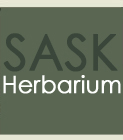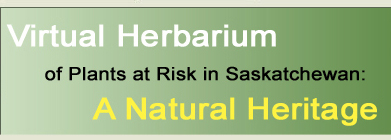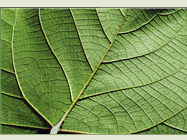
|

|

|

|

|

|

|
|
|
|
|
|
| Rhynchospora capillacea Torr. | Species Image Gallery (opens in a new window) |
||||||||||||||
| TAXONOMY | |||||||||||||||
| Family: | Cyperaceae | ||||||||||||||
| Genus: | Rhynchospora | ||||||||||||||
| Species Synonyms: | Rhynchospora smallii Britt. Rhynchospora capillacea var. leviseta E.J. Hill ex Gray |
||||||||||||||
| Common Names: | slender spikerush horned beakrush needle beaksedge needle beaked-rush slender beaked-rush hair-like beaked-rush |
||||||||||||||
| DISTRIBUTION | |||||||||||||||
| Canada: | central Alberta – central Saskatchewan – southern Manitoba – Ontario – New Brunswick – Nova Scotia – Newfoundland | ||||||||||||||
| Saskatchewan: | central Saskatchewan; Big River – Armit | ||||||||||||||
| Ecoregion: | Aspen Parkland, Boreal Transition, Mid-Boreal Upland | ||||||||||||||
| HABITAT | |||||||||||||||
| Saskatchewan: | calcareous bogs in southern boreal forest | ||||||||||||||
| Associated Species: | bristly muhly, dioecious sedge, downy sedge, English sundew, few-flowered spikerush, grass of Parnassus, little green sedge, lobelia, Macoun’s gentian, marsh arrowgrass, mud sedge, northern bog aster, sticky false asphodel | ||||||||||||||
| RARITY STATUS | |||||||||||||||
| Provincial
Status According to Harms (2003): |
Threatened |
||||||||||||||
| Nature Conservancy Status: | G5 S2 |
||||||||||||||
| Saskatchewan
Species at Risk Status: |
None |
||||||||||||||
| COSEWIC Status: | None |
||||||||||||||
| Slender spikerush is threatened in Saskatchewan because it is rare or uncommon. This species is regionally restricted and local population sizes vary. No immediate threats are known at the present time. | |||||||||||||||
| SPECIES DESCRIPTION | |||||||||||||||
| Height: | 10 – 40 cm | ||||||||||||||
| Roots: | rhizomes resembling runners, slender; roots fibrous | ||||||||||||||
| Stems: | erect or curved, thread-like, leafy | ||||||||||||||
| Leaves: | ascending, usually shorter than stem, upper leaf may exceed inflorescence, 1 – 4 mm wide, thread-like, tip bristle-like, margin inrolled | ||||||||||||||
| Inflorescence: | clusters of spikelets 1 or 2, terminal, ellipsoid or oval, < 1 cm wide; bracts leaf-like | ||||||||||||||
| Spikelets: | 2 – 10 per cluster; erect or ascending, sessile or nearly so, 6 – 7 mm long, spindle-like; scales pale red brown to brown, to 4 mm long, lower scales sterile | ||||||||||||||
| Flowers: | 1 – 4 per spikelet; perianth bristles 6, equally or shorter than achene, downwardly barbed; stamens 3 | ||||||||||||||
| Achenes: | stalked, ellipsoid, lens-shaped, pale brown; swelling at base of style narrowly triangular, flattened | ||||||||||||||
| |||||||||||||||